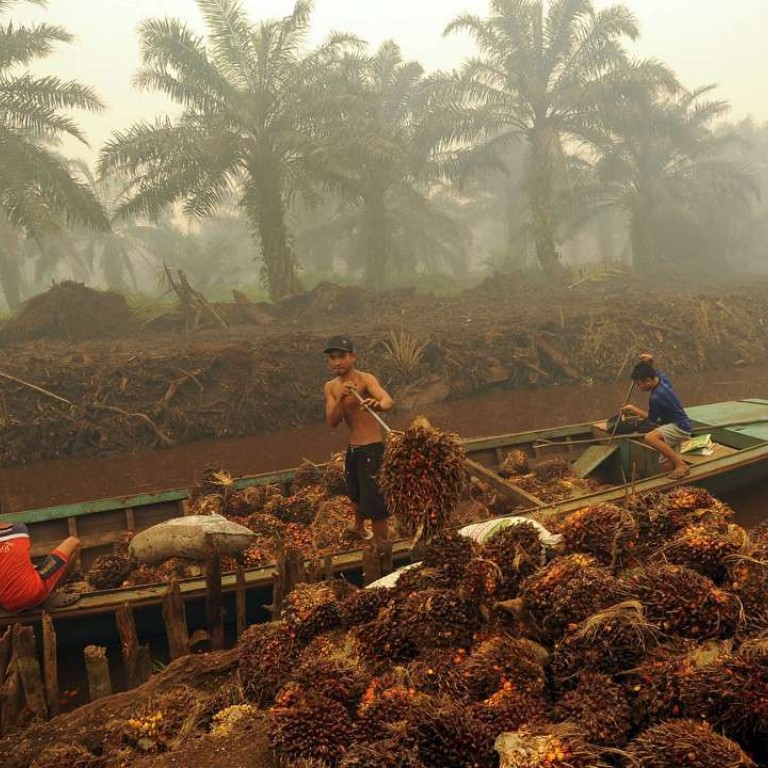
Indonesia pushes to ban new palm oil operations to curb forest fires
President Widodo has proposed moratorium on new production to curb environmental damage
Indonesia is pushing to ban new palm oil operations after last year’s haze-belching forest fires were partially blamed on the industry’s expansion. Producers, though, are warning the move could hit the economy and green groups are sceptical.
President Joko Widodo in April proposed a halt on granting new land for palm oil plantations in
the world’s top producer of the edible vegetable oil, a key ingredient in many everyday goods, from biscuits to shampoo and make-up. He said “palm oil concessions available at the moment are already adequate” and urged producers to concentrate on using better seeds to increase yields.
Plantations on Sumatra island and the Indonesian part of Borneo have expanded in recent years as demand for palm oil has skyrocketed, bringing huge profits to companies and healthy tax revenues to the government.
But the rapid growth has been blamed for the destruction of tropical forests that are home to many endangered species, and forest fires that occur every year during the dry season due to illegal slash-and-burn clearance.
The 2015 blazes were the most serious for some years, worsened by dry weather caused by an El Niño phenomenon, and cloaked large stretches of Southeast Asia
in toxic smog for weeks.
As long as people want a quick return, quick money, the forest will keep burning
The proposed moratorium on new concessions is the latest move by Widodo aimed at reducing environmental destruction caused by the industry and halting the annual smog outbreaks. But the Indonesian Palm Oil Association warned that the ban could damage a mainstay of Southeast Asia’s biggest economy that supports 24 million jobs.
“Palm oil is a strategic sector which contributed US$19 billion in exports in 2015,” said Tofan Madji, from the group which represents 650 companies. “It contributes to economic growth, especially in remote areas.”
Activists were cautious about the proposal, with Greenpeace Indonesia warning it would not
be effective unless the government introduces a tough regulation, rather than just a weaker “presidential instruction”.
Kiki Taufik, Greenpeace Indonesia forest campaigner, also warned of implementation problems as various parts of government would need to work together for a ban to work.
“This is probably one of the hardest parts – lack of coordination among officials is common and it often leads to bad implementation,” Taufik said.
A moratorium on new logging permits on primary forest and peatlands – defined as areas not logged in recent history – has been in place since 2011, but campaigners say it has sometimes been ignored when local governments grant concessions.
The government has also pledged to punish more than 50 companies accused over last year’s forest fires. But it suffered a setback in December when a court rejected a US$565 million lawsuit against a pulp and paper company accused of failing to prevent the blazes.
Some believe that little can be done to stop the annual fires when there is still money to be made from palm oil.
“The main cause of forest fires is greed,” said Herry Purnomo, a scientist at the Indonesia-based Centre for International Forestry Research. “As long as people want a quick return, quick money, the forest will keep burning.”

.png?itok=arIb17P0)